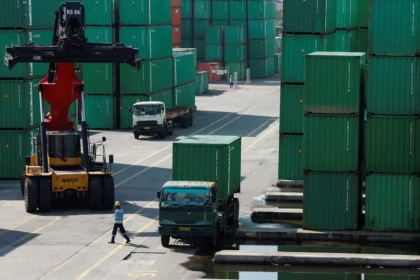SCO Condemns Israel Over Iran Conflict, While India Chooses to Dissociate from Statement
New Delhi: Underscoring its own unwillingness to criticise Israel, India today (June 14) distanced itself from a statement issued by the Shanghai Cooperation Organisation (SCO), which strongly condemned Tel Aviv’s military strikes on Iran and characterised them as violations of international law and the UN Charter.
The Israeli strikes on June 13 targeted Iranian military and nuclear sites, reportedly killing 78 people, including three senior security officials, the country’s top nuclear negotiatior Ali Shamkhani, and causing damage to the Natanz nuclear facility. In response, Iran launched a barrage of ballistic missiles and drones early Saturday, resulting in at least three fatalities and injuring dozens more.
In a strongly worded statement today, the SCO said member states had expressed concern and “strongly condemn” the Israeli strikes.
“Such aggressive actions against civilian targets, including energy and transport infrastructure, which have resulted in civilian casualties, are a gross violation of international law and the United Nations Charter. They constitute an infringement on Iran’s sovereignty, cause damage to regional and international security, and pose serious risks to global peace and stability,” it said. Iran is also a member of the 10-member grouping.
The SCO statement did not indicate that any member had dissociated from it. However, India issued a separate statement almost concurrently, clarifying that it was not part of the SCO’s decision-making on this matter.
India said that its position had been communicated to other SCO members. “Keeping that in mind, India did not participate in the discussions on the above-mentioned SCO statement,” it said.
It noted that India had already articulated in its position on Friday. “We urge that channels of dialogue and diplomacy be utilised to work towards de-escalation and it is essential that the international community undertake endeavours in that direction,” said the statement.
India has so far only said that it was “deeply concerned” at the “recent developments between Iran and Israel”.
The latest MEA statement also noted that External Affairs Minister S. Jaishankar had spoken to his Iranian counterpart on Friday, conveying what India described as the international community’s “deep concern” over the situation. He had also urged both sides to avoid further escalation and return to diplomatic channels at the earliest.
A day earlier in New York, India abstained on a UN General Assembly resolution calling for a ceasefire in Gaza, marking a reversal from its support for a similar resolution in the same body six months ago.
While India limited itself to expressing concern, other Asian countries reacted more forcefully to the Israeli strikes.
Japan’s foreign minister Takeshi Iwaya issued a statement on Friday condemning Israel’s actions in unequivocal terms.
The use of military means amid ongoing diplomatic efforts, including US-Iran talks aimed at the peaceful resolution of Iran’s nuclear issue, is completely unacceptable and deeply regrettable. The Government of Japan strongly condemns these actions,” he said.
While Japan acknowledged Iran’s retaliatory response, it did not condemn Tehran, instead expressing concern about the exchange of attacks and calling for restraint.
China also denounced the Israeli strikes, describing them as violations of Iran’s sovereignty. “China is closely following Israel’s attacks on Iran and is deeply concerned about the potential grave consequences of the operations,” said Chinese foreign ministry spokesperson Lin Jian. He said China opposed actions that “violate Iran’s sovereignty, security and territorial integrity” and called on all sides to avoid further escalation. Beijing currently holds the rotational chairmanship of the group.
South Korea expressed “deep concern over the sharp rise in tensions following Israel’s attacks on Iran” and said it “strongly condemns all actions that destabilize the region”. A foreign ministry spokesperson urged all parties to “exercise maximum restraint to help de-escalate the situation”.
Other Asian countries had more muted responses. Vietnam and the Philippines, both of which have diplomatic relations with Israel, did not issue any public statement. Singapore said it was “deeply concerned” and urged “all parties to exercise restraint and to de-escalate”
The largest south-east Asian economy, Indonesia, and a country that does not have diplomatic ties with Israel, issued a strong condemnation. Its foreign ministry called Israel’s attack on Iran an “unlawful act” that “undermines the very foundations of international law”.
Malaysian prime minister Anwar Ibrahim posted on X that he condemned “in the strongest possible terms, the Israeli military strikes in Iran, including targeted attacks that have killed senior Iranian leaders”.
“Its clear aim is to sabotage the ongoing negotiations between the United States and Iran. It also comes amid renewed scrutiny of Israel’s conduct in Gaza and mounting political pressure on [Israeli Prime Minister] Benjamin Netanyahu,” he wrote.
Also Read: South Africa vs Australia Live Score: Day 4 Updates from ICC World Test Championship Final 2025








